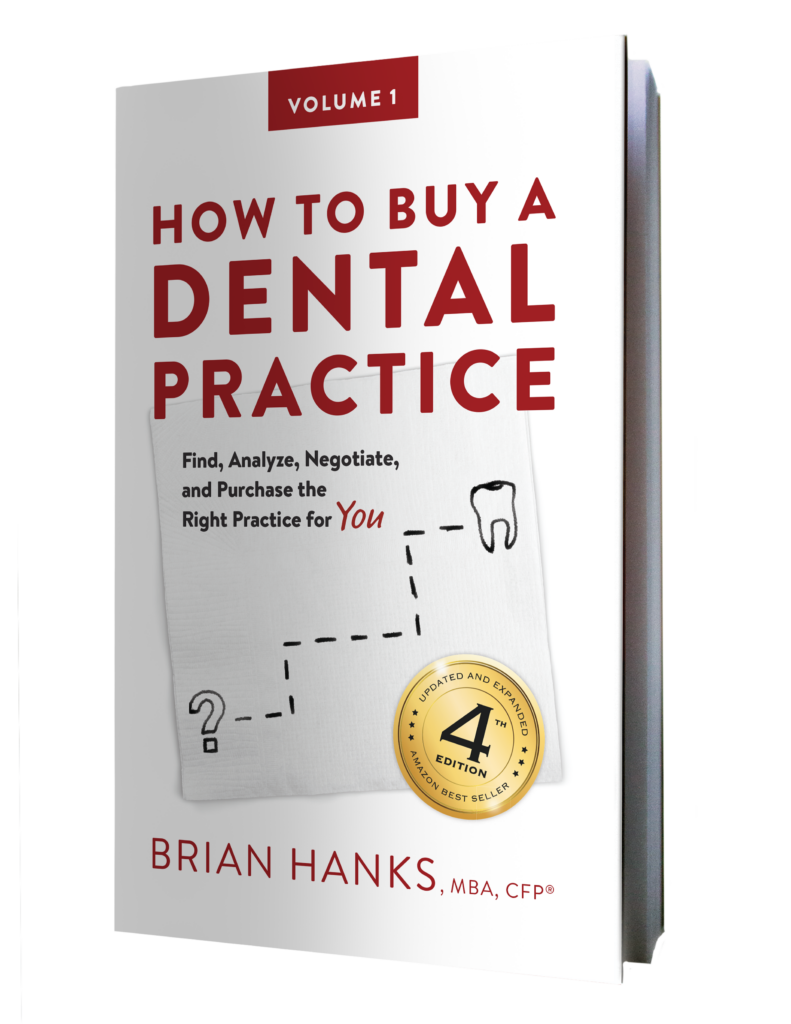An underappreciated first step in buying a dental practice? Decide whether you want to buy one at all.
I’m obviously biased, since I’ve spent the last decade-plus helping dentists buy practices, so even I have to back up every once in a while and remind myself: it’s not for everyone!
The upside for owners (much, much higher pay) comes with a little extra risk and a lot of extra responsibility. If you remain an employee or associate dentist for the rest of your career, you’ll never have to worry about:
- Advertising and attracting new customers.
- Hiring, firing, and managing employees.
- Equipment, computers, dental supplies, etc.
- Bills, building lease or mortgage.
Again, the rewards are huge, and I do encourage every dentist to at least explore the possibility of ownership. Here’s how I put it in the first chapter of my book:
Running a business and clinically diagnosing and treating dental work are two different skills. Pretend for a moment you’re Shaquille O’Neal, preparing to make a comeback and play basketball with the Lakers. You head to tryouts and instead of a basketball the coach hands you a bat, glove, and baseball and says, “Show us what you can do.”
A lot of newer practice owners feel like they’ve invested an immense amount of time and energy on mastering these clinical skills, and then they buy a practice. And it’s like someone handed them baseball gear at a basketball tryout.
There’s no question the most valuable skills you’ll have in your career are your clinical skills. Your ability to diagnose and treat dental patients is probably your most financially valuable skill.
The second most valuable skill you’ll have in your career, however, is your ability to run a business. The two skills are very, very different.
Once you buy the practice, you’ll be marketing your services, hiring and managing employees, fixing the operations of the practice to make sure things run smoothly, negotiating with suppliers, reading financial statements, and on and on.
And you’ll be the boss of it every day you own that practice.
The dentists who are most successful both in terms of money and overall happiness are those who think of themselves as business owners who happen to be dentists, instead of as dentists who happen to own a business.
The good news is you don’t have to know or even be good at everything from day one. You can and should hire help for some of the key business functions that need to get done. The rewards of ownership are absolutely worth the risk. You’ll have total control over the types of dentistry you do. You’ll have total control over the patients you see. And because you’re taking on more risk and more responsibility, you’ll probably receive a bigger paycheck than if you stay an employee.
But you need to go into the project of buying your dental practice with your eyes open and with the mindset of a business owner.
If you think ownership is for you, grab How to Buy a Dental Practice for just $9.99. (Shipping is free, by the way.) The book will set you up for a successful search, analysis, and purchase of your own practice, and you’ll be among the most prepared buyers out there simply for having read it.







